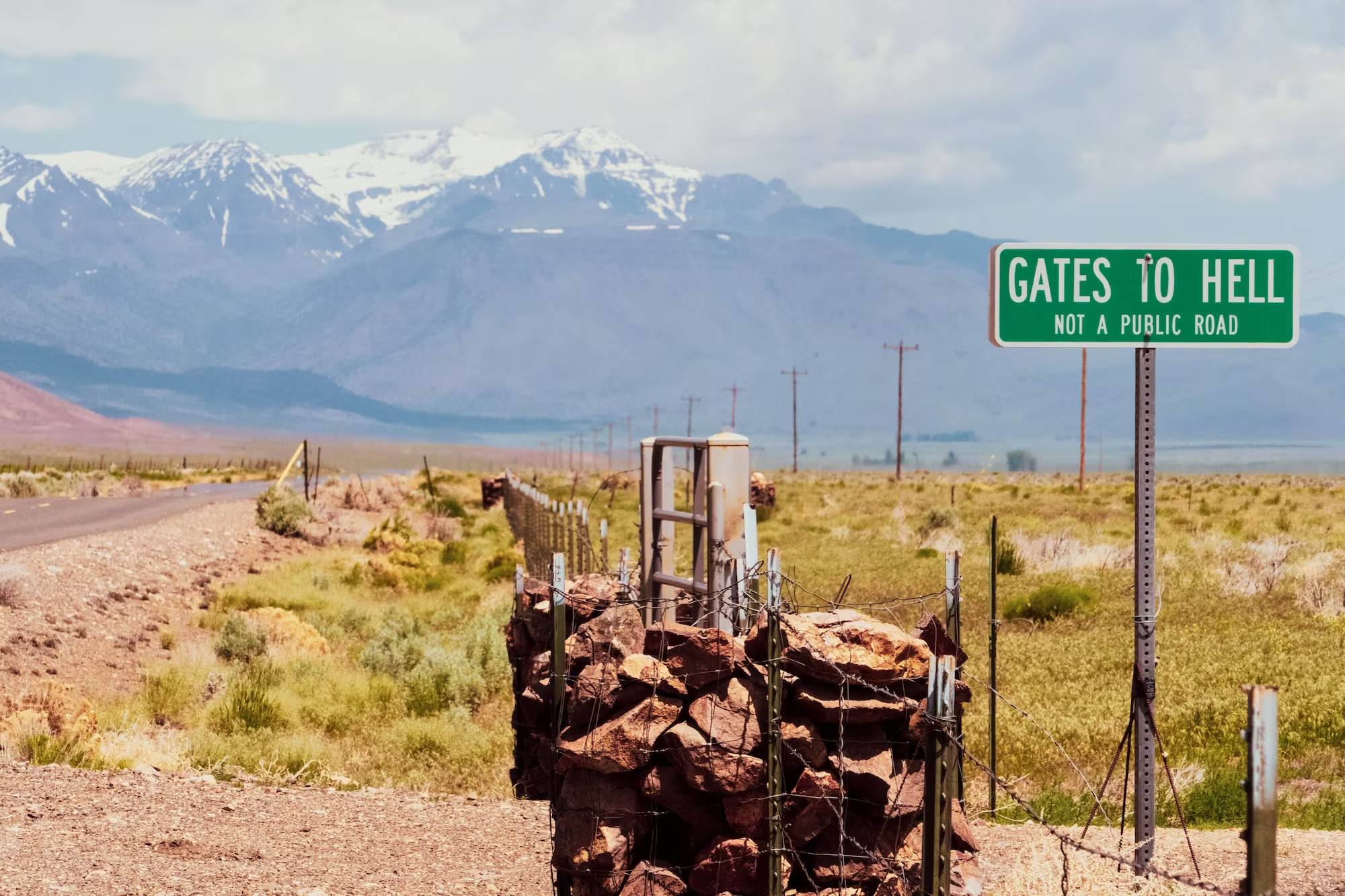Hello all,
We humans find it hard to change our minds. A decent chunk of behavioural science is just acknowledging this fact; the scientific method is based on it. And yet the difficulty persists.
When we encounter a counterargument to something we believe, we squirm and turn away; we experience “cognitive dissonance”. One recent experience of cognitive dissonance that I’ve had is with the idea of “purposeful business” – the idea that for-profit businesses should be a force for good, and should seek to pursue social and political goals worthier than mere profit.
Like Fox Mulder, I want to believe. And the feelings of discomfort are even stronger when the idea that’s being challenged is one that’s comforting and emotionally held. It’s all to easy to shy away from them, and fail to change your mind.
The trigger for the recent uncomfortable feelings for me was Nick Asbury’s excellent new book The Road to Hell. This week’s article is a review of that book, charts the course of my mind-changing, and suggests where I think we need to go next.
Best,
Rob
This week’s article
Review: The Road to Hell
Nick Asbury’s new book argues that the business world’s embrace of brand purpose over the last 15 years has been a huge error, failing to do both marketing and social good. But what comes next?
Click here to read the article »
This week’s six interesting links
Columbia Law Review board nukes website over Palestine article
The conflict within US universities over support for and reporting on the war Israel is waging in Gaza has thrown up another depressing case.
Last November, lawyer Rabea Eghbariah was to be the first Palestinian published in the Harvard Law Review, but he had his essay spiked before it could be published. The editors of the Columbia Law Review stepped in and stepped up, offering Eghbariah a chance to publish a newly updated essay in their journal. The Review’s board of directors intervened, responding not just by censoring the article itself, but by disabling the Review’s entire website. (It currently says, seemingly dishonestly, that it’s “under maintenance”.)
The worst thing is that Eghbariah’s article, which can still be read here, is not some aggressive polemic. It’s a thoughtful, considered, thoroughly researched essay that argues that the experience of the Palestinian people since 1948 is a category of oppression worthy of its own label, “nakba”. Eghbariah argues that it differs from genocide, from apartheid and from colonialism in important ways, ways that the law should recognise – just as it did following the Nuremberg trials, which prompted the recognition of “genocide” as a special category of crime that could exist in addition to “crimes against humanity”, which predated World War II.
Whatever you think of Eghbariah’s argument – I happen to find it extremely persuasive, but others may not – it seems deeply troubling that the Law Review of an Ivy League college would stoop to such naked censorship. #
How do they know dogs are colorblind?
A lovely short film from new YouTube channel HowTown, exploring and explaining dog vision in an extremely clear way. #
When America was great, according to data
A data project from the Washington Post which investigated which decades people considered to be the “best”. It confirms an intuitive human truth:
“The good old days when America was ‘great’ aren’t the 1950s. They’re whatever decade you were 11, your parents knew the correct answer to any question, and you’d never heard of war crimes tribunals, microplastics or improvised explosive devices. Or when you were 15 and athletes and musicians still played hard and hadn’t sold out.”
Gaza’s Great Omari Mosque, now in ruins
A simple but extremely powerful telling of a tragic story. This New York Times interactive uses historical photos, overlayed neatly, to tell the story of Gaza’s Great Omari Mosque, which has been destroyed once more by an Israeli bombardment. #
Generative AI is totally shameless. I want to be it
Paul Ford is wonderful on the shameless usefulness of AI:
“So I should reject this whole crop of image-generating, chatting, large-language-model-based code-writing infinite typing monkeys. But, dammit, I can’t. I love them too much. I am drawn back over and over, for hours, to learn and interact with them. I have them make me lists, draw me pictures, summarize things, read for me. Where I work, we’ve built them into our code. I’m in the bag. Not my first hypocrisy rodeo.”
Montenegro’s pivot
A couple of years ago, Bloomberg published an extraordinary article about the Montenegrin infiltration of the Mediterranean Shipping Co., effectively converting it into a cocaine logistics business. Following on from that is Alexander Clapp’s account of how Montenegro came to occupy a crucial role in the global drugs trade:
“…seafarers from places like Kotor – which straddled the Venetian and Ottoman empires – occupied a crucial position in 16th-century Europe. The clans in and around Kotor functioned like ‘linguistic and cultural amphibians’, serving as missionaries, spies, merchants and pirates. The Adriatic clans were often exploited by the empires that encroached on their mountains and occupied their ports – enlisted into naval crews, or forced to convert – but in many ways they benefited from their borderland identity. They played off great powers against one another, leveraged strategic information for court influence, infiltrated imperial ranks and forged valuable mercantile connections.”
